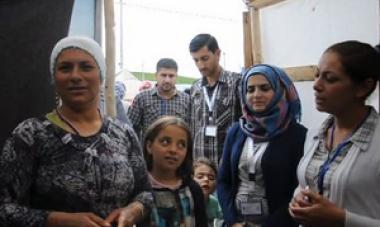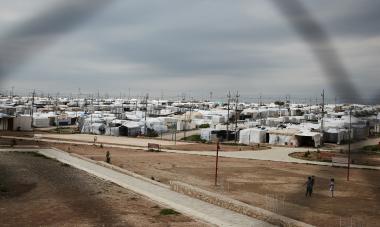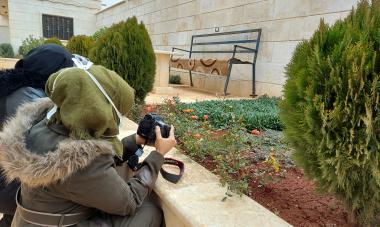ERBIL, IRAQ and WASHINGTON, DC – Women for Women International released the following statement in response to continuing crisis in Syria and northern Iraq, from CEO Laurie Adams and Aram Shakerm, Country Director in Iraq. Women for Women International opened offices in Erbil specifically to support women survivors of war and conflict. The staff in Erbil are responding to the escalating crisis to assist women and families in the region.
Aram Shakerm, Iraq Country Director based in Erbil, said the women of this region had already experienced so much past tragedy, losing their homes and suffering physical and sexual violence at the hands of ISIS. Now their safety and human rights are in danger again.
“The U.S. government celebrated what it called a ceasefire, but the suffering has not ended for the Syrians. Their formerly semi-autonomous region is now host to Turkish military forces and Syrian militia whom Amnesty International says have committed war crimes.”
“This situation is going to get worse here on the ground in northern Iraq,” Shakerm said. “Hundreds of ISIS militants that the Syrian Democratic Forces (SDF) had captured are now on the loose in northern Syria. The consequences will be particularly dire for women.”
Shakerm said that under past SDF control in northern Syria as well as in northern Iraq, he has witnessed significant advancement of women’s rights, but those advances are in serious jeopardy.
“Women have been considered legally equal to men, and co-chair all official meetings,” Shakerm said. “While there are still terrible patriarchal practices and norms – female genital mutilation, child marriage and ‘honor killings’ – women have been much freer to participate openly and actively in public life than in the rest of Syria or Iraq. But this conflict could set back all those advances. It is a critically important time not only for humanitarian action, but to defend and advance the rights of women.”
“This crisis threatens to bring more risk, harm, and terror to women refugees, on top of the trauma and poverty they have already experienced.”
Laurie Adams, CEO of Women for Women International based in Washington, D.C., said it is unfortunate but necessary that her organization step up its efforts to support refugees and displaced people in Syria and Iraq.
“When our government forsakes its role as a promoter of peace and rights, it is left to us and other development organizations in the region to step forward,” Adams said. “As big as the world’s problems seem, we can and must do our part to ensure that the world’s most vulnerable people, especially women do not suffer yet more as pawns in international political machinations.”



